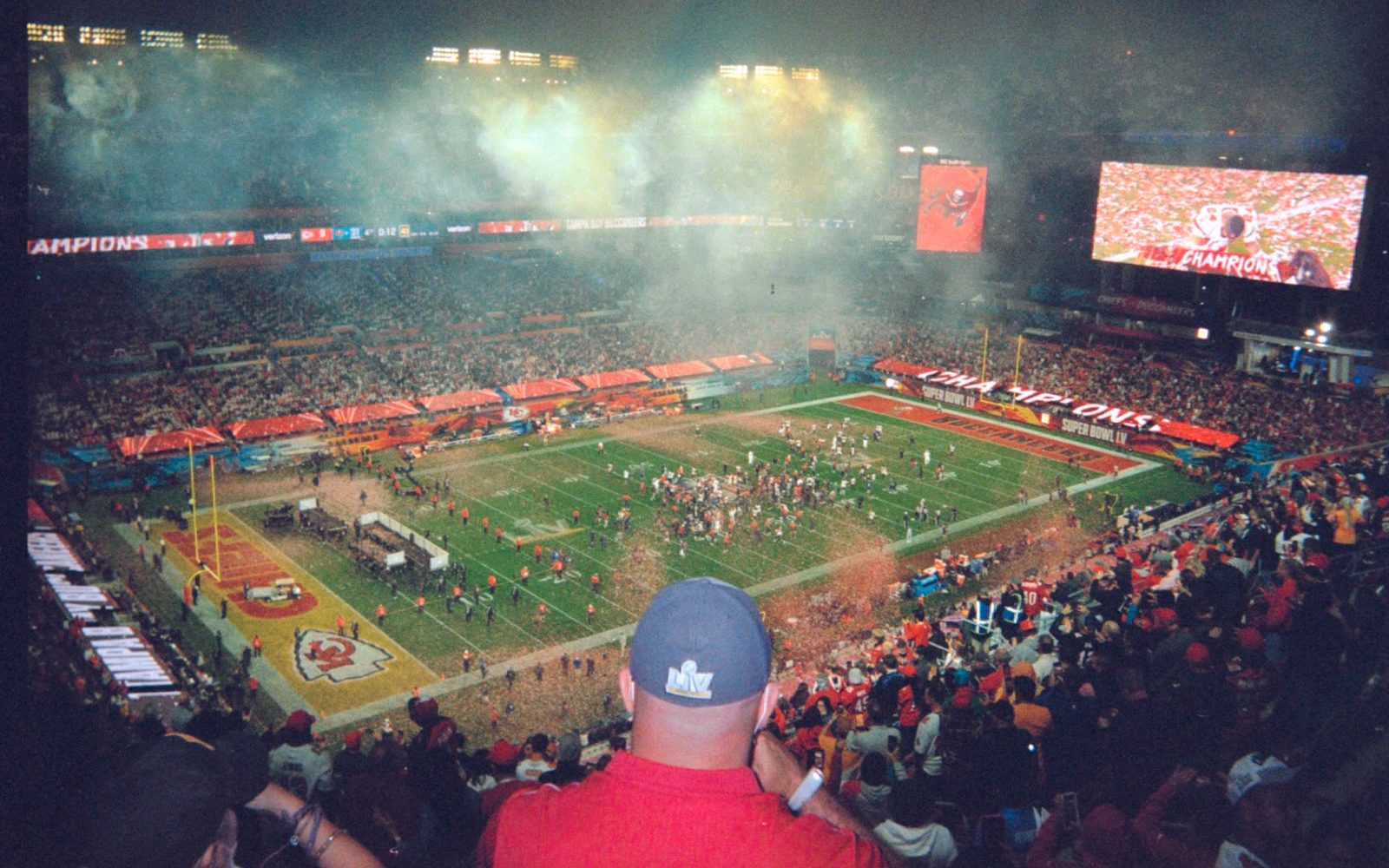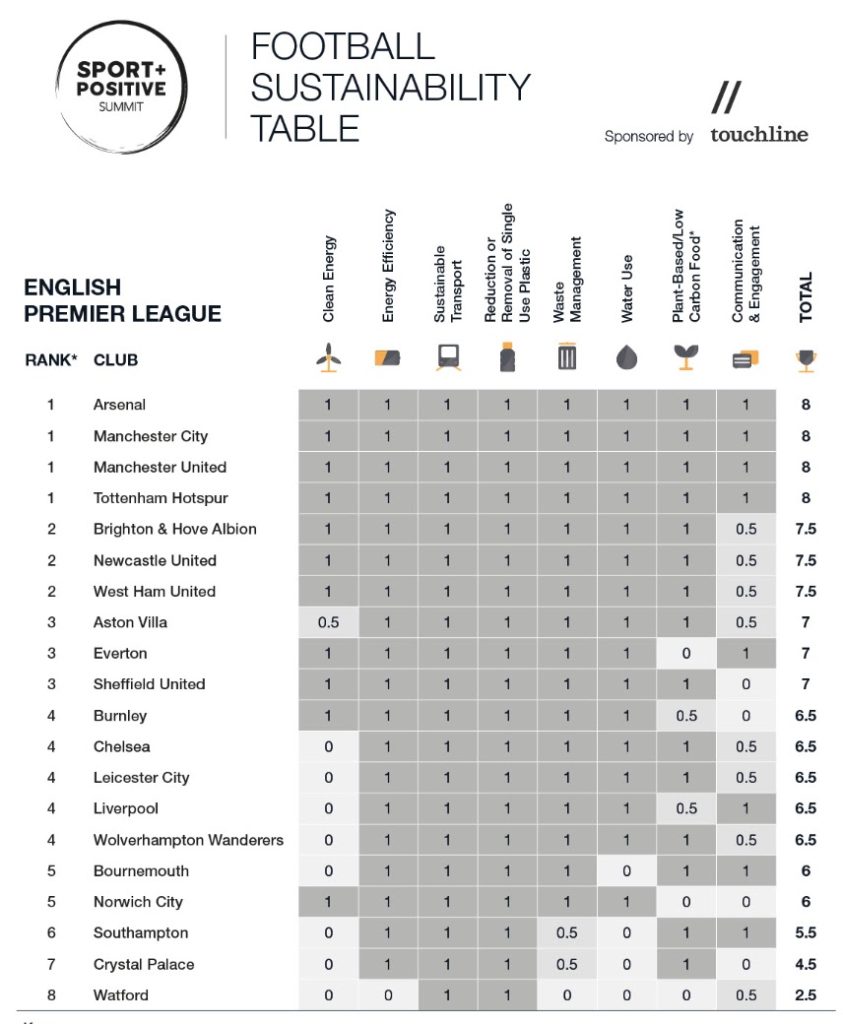Sports have undoubtedly become one of the most commonly shared activities in human history. Played across the globe on expansive fields, an aspect that is not typically covered within environmentalism is the environmental impact sports have.
We think so highly of our beloved teams and could not see them doing any wrong. However, sports have continuously had a massive contribution to climate change. As fans we must acknowledge this issue and advocate for change.

The Problem
Sports facilities in the United States are responsible for 38% of all US carbon dioxide emissions, in addition to several other surprisingly frightening stats.
A 2015 study found that sports facilities within the United States are linked to:
14% of potable water consumption / 30% of national waste output
40% of raw material use / 38% of carbon (CO2) emissions
24-50% of total energy use / Over 70% of electricity consumption
This begs the question: How should we address this issue of massive consumption of resources and output of pollutants in sports? More importantly, how should we as fans move forward with our environmental responsibilities, while also maintaining the popularity of our favorite sports?
The world awaited a historic year as the COVID-19 pandemic postponed NFL, NBA and other seasons, leaving many wondering when our favorite teams would return. This challenging era provides us with an opportunity to reevaluate our love for the various sports played across the globe.
We have a rare chance, as fans, to take a step back and look at how to change our behaviors and take into account the future of our environment alongside our adoration for sports.
Premier Impacts
The negative effects sports have on the earth goes beyond torn up grass and are much worse than most of us realize.
Let’s take a look specifically at the English Premier League, England’s most prestigious football league. During the 2016/2017 season, these teams produced around 1134 tons of CO2. 1134 Tons of CO2, according to the EPA is equivalent to 2,813,896 miles driven by the average passenger car. When this immense output was analyzed, nearly 61% of the CO2 came from travel.
Sport Positive released a sustainability table depicting the actions of Premier League teams, giving each team a score based on how sustainable their actions were. Teams were scored on eight different aspects including clean energy, energy efficiency, transportation, waste management, removal of single use plastics, water use, plant based food options, and communication and engagement.
Interestingly, the four teams that scored an 8/8 all happen to be very competitive rivals. Arsenal and Tottenham Hotspurs battle3 each year in the North London Derby, an intense match to see who will claim the title of best team in North London. Additionally, perhaps the largest rivalry in English football, Manchester United and Manchester City, also each scored 8/8 points in the sustainability table.
All four teams received full marks by taking actions on providing vegan menu options around the stadium, implementing rainwater capture techniques, committing to zero waste in the landfill, dedication to more renewable and efficient energy and much more.
From traveling for games to what food is served at the stadium, there is a lot of room for improvement in the sports world. Teams will have to compete on and off the field to win fans. Competition is what fuels the base of sports and soon we will be rooting for the teams who lower their environmental impact the most. These teams are steadily becoming more sustainable and fans are advocating for this change, but we need to shine a brighter spotlight on this subject.
Fan Engagement
Fans have become the crucial link between environmentally responsible behaviors of sports teams and a positive global impact. A football focused survey from LIFE TACKLE, done recently in Italy and Sweden, found 69% of fans would be happier to attend football matches if they were more environmentally friendly, while 86% of fans agreed that football should address environmental issues in the same ways it does with other major issues, such as racism.
We saw an immense move from sports teams and athletes in support of the Black Lives Matter movement this past year, showing the power of the sports world to unite on major issues through their platforms. This hints that the sports sector can also heavily influence other major issues, especially climate change. So what can one single fan do to nudge sports teams and influential players to take action?

A single fan provides much more hope and influence than you might think. A study aimed at fan engagement in the English Premier League stated that 86% of fans were keen on teams transitioning away from single use plastics, and 84% of fans, based on the survey, would like to see their team introduce a reusable cup, which some teams such as Arsenal and Manchester City have already implemented. This was acknowledged after over 6 million plastic beer cups were used in the last season.
There opens an opportunity between fans and teams to communicate what actions they want to see done moving forward, and to bring awareness to pressing issues. Communication is key as fans want to see changes, but also want to feel involved. Around 80% of fans claimed that it would be easier for them to “take environmentally-friendly actions” if their favorite football club implemented sustainability initiatives.
In order for these large sports teams to take action, fans must push the needle and show our interest in heightening the environmental awareness of our favorite teams. We cannot let this be a one sided affair, waiting for teams to slowly address the issue at hand. We must be educated about teams’ environmental impacts and acknowledge the ripple effects our stances can have.
German Excellence
A great example of fan and team interaction resulting in positive environmental changes can be seen in German sports teams. Some teams — including Werder Bremen, a German Bundesliga football team — advocate for their employees and fans to take part in climate protests.
Other teams have initiated a “climate ticket,” allowing fans to donate one euro with every ticket purchase. These donations go towards planting a tree in a selected forest that the team works with during the season. This “climate ticket” may not have an immense direct impact, but it brings environmental issues front and center every time a fan purchases a ticket, initiating a discussion between fans and supporters that will lead to more awareness.
Fans in Germany are also acknowledging the harmful effects and overuse of air travel and agree that this should come with a price. A study by public service broadcaster ARD found that 71% of Germans agree that it would make sense to raise airline prices and 97% supported the expansion of renewable energy. This interaction between fan and team has spurred Germany as a hub for some of the most progressive ideas when considering sports and sustainability.
Next Steps
With teams and stadiums working to educate fans properly on environmental impacts and promote responsible operations, fans must take the next step. So what can you do?
- Gather your fellow friends and fans to educate before each game-day
- Plan a zero single-use plastic tailgate, or take it up a notch and go zero waste
- Sign the Global Climate Pledge
- Sign the pledge, share it, and involve friends in a conversation
- Reach out to your local team and let them know you want to see environmental issues addressed
- Most sports teams have a feedback section on their website for this
- Reduce your use of single use plastics at stadiums and at home
- Invest in a reusable cup, straw, and silverware
- Analyze your energy, food, and transportation use
- Calculate your carbon footprint
- Try to carpool when possible
- Try meatless Mondays, or make a homemade vegan meal
Try to remember the last sports game you attended, I am sure there was a moment that your team, or the opposing team, started a chant. One, two, five people all singing along their voices soon flood the arena with a single purpose, to motivate their team. Those same people singing and cheering after every goal have the chance to motivate their team beyond the run of play.
“Sport has the power to change the world. It has the power to inspire, it has the power to unite people in a way that little else does.”
Nelson Mandela
This is a chance for fans and sports teams across the globe to send a message that changes the world. Be part of that change.
—
By Austin Anahory, GCP Sports Specialist






